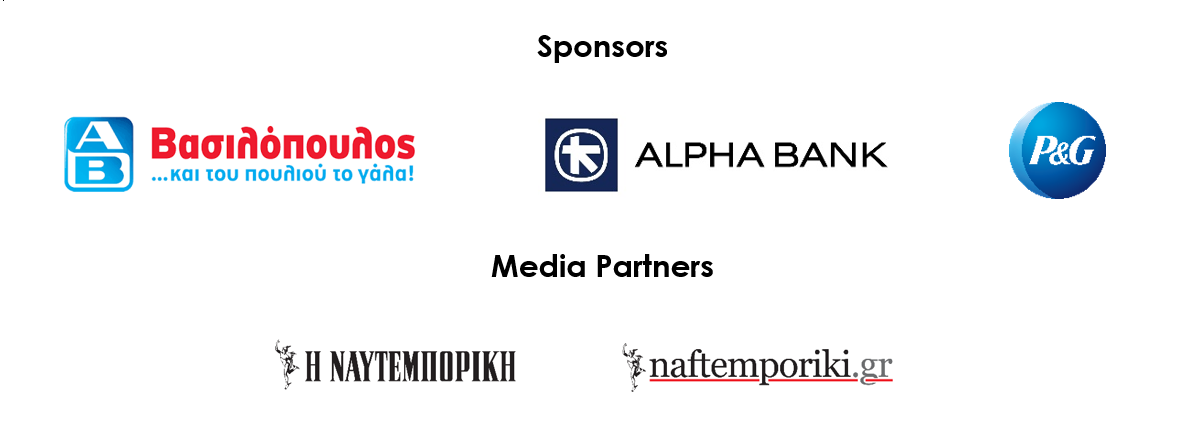
The changes that Covid-19 brought in the retail sector, the new landscape in consumer behavior and how the retail sector is shaped the day after the crisis caused by the pandemic, were discussed in the digital event “The New Landscape in Retail Markets: How Covid-19 Affects the Supply Chain, Retail Sales and Consumer Behavior” organized by the American-Hellenic Chamber of Commerce in the context of AmCham Digital Talks&Events.
Nikolaos Bakatselos, President of American-Hellenic Chamber of Commerce opened the discussion and remarked that: “The new landscape formed by Covid-19 significantly affected the retail sector. The crisis management measures, in parallel with the increased use of communication technologies, are creating a new landscape in consumer behavior, new trends in retail and the operation of the supply chain”. According to Mr. Bakatselos, these new dimensions established a new environment, part of which will continue existing after the Covid-19 crisis.
Nectarios Notis, Founder & CEO of Notice Content and Services (FnB Daily – BnB Daily) was the moderator who set the context of the discussion focusing on what happens in retail and what needs to be done from now on.
Panagiotis Stampoulidis, Secretary General of Commerce & Consumer Protection of the Ministry of Development & Investments pointed out that: “The situation we were called upon to deal with is an unprecedented situation for the public administration and the economic and social life of the country, in order not only to manage the country’s health crisis, but also to guarantee the uninterrupted supply of goods and ensuring that they are accessible to the consumers”. He added that the policies pursued are based on three pillars, which are: the rapid legislative initiative, the market surveillance to protect the economic interests of consumers, and the smooth transition to the new normality.
According to the data of the research presented by Vicky Grigoriadou, President & Managing Director of The Nielsen Company, the evolution of food sales and trends in food retail before and during the pandemic were highlighted. In this research, new trends and characteristics in the behavior of Greeks consumers were observed, such as the inner domestic consumption, the confidence that buyers show to products which are familiar to them, their preference to spacious points of sale and the drastic change in retail channels. Technology, locality, quality and efficiency of products and services will significantly impact to many of the changing dynamics in the future.
Vassilis Stavrou, CEO of AB Vassilopoulos stated: “We continue to contribute to the smooth return to normality monitoring the developments, both in terms of the pandemic and in terms of market formation. We believe in its restart. We give priority to security and we support the country with investments. We give priority to the service of our customers, our partners, and the Greek society. We want to leave our positive imprint and make a difference in the lives of our fellow citizens”.
Ermioni Georgoulaki, P&G Greece Country Leader remarked that the current global situation caused unprecedented challenges for everyone, both personally and professionally, and that the forthcoming months will likely be dynamic and subjected to changes. In this environment, everyday basic goods become even more important for consumers who spend more time at home and take care of the protection and safety of their family. She also pointed out that: “We will continue to focus on developing products of superior quality and value, providing useful communication to consumers, so that they understand why it is worth buying this innovation and the possible cooperation with retail for the presence of products in each channel trade in both the traditional store and online”.
According to Damianos Charalampidis, Executive General Manager, Chief Digital Officer and Retail Banking Products of Alpha Bank the effort to transfer cash transactions to digital media had already begun in 2017 but accelerated during the lockdown. The percentage of transactions in stores during the pandemic period decreased from 14% to 8%. As he highlighted more work is needed to keep this percentage below 10%, adding that “The banking model is expected to change, with less emphasis on transactions and more on customer consulting. I estimate that the change of the operating model will not concern so much the number of stores and the coverage of the network, but mainly the internal operating model of the store”.



